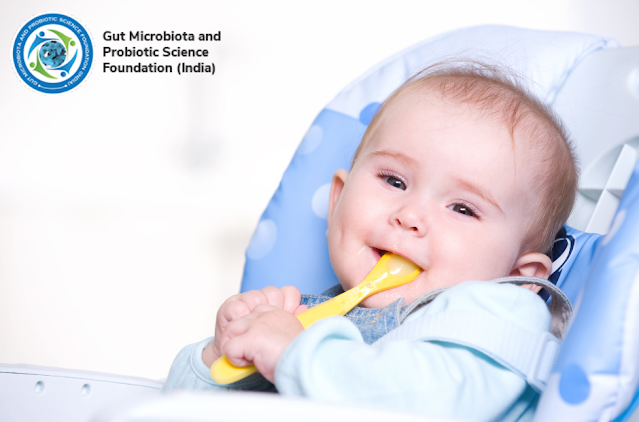Top 5 Things You Can Do for Your Infant's Healthy Gut Microbiome
As parents and caregivers, we strive to give our babies the best start in life. The healthy gut microbiome is a crucial aspect of early childhood development that often goes unnoticed. The gut microbiome, a collection of trillions of microorganisms residing in the digestive tract, plays a vital role in immune function, nutrient absorption, and overall well-being.
In this comprehensive guide, we will explore the top five things you can do to support a healthy microbiome for your baby.
1. Breastfeeding Benefits:
Breast milk is nature's perfect food for newborns. It provides essential nutrients for growth and contains prebiotics that nourish the beneficial bacteria in the baby's gut. Breast milk is rich in human milk oligosaccharides (HMOs), which act as prebiotics, supporting the growth of specific beneficial bacteria like Bifidobacterium.
Research studies have shown
that breastfed infants tend to have a more diverse, balanced, and healthy gut microbiome,
positively impacting their immune system development and reducing the risk of
allergies and chronic diseases later in life.
2. Introduction of Solid Foods:
When the time comes to introduce solid foods, it's important to prioritize a diverse and nutrient-rich diet. Introducing a variety of fruits, vegetables, whole grains, and proteins helps promote the growth of various microbial species in the baby's gut.
Fiber-rich foods, such as lentils, beans,
and whole grains, act as prebiotics, feeding the beneficial bacteria. Remember
to introduce new foods gradually, offering various flavors and textures to
expand their palate and microbial diversity.
3. Consider Infant Probiotics:
Probiotics are live microorganisms that provide health benefits when consumed in adequate amounts. Infant-specific probiotics, such as strains of Bifidobacterium and Lactobacillus, can help support the development of a healthy gut microbiome. They can be particularly beneficial for babies not exclusively breastfed or born via cesarean section, as these factors may naturally affect the acquisition of beneficial bacteria.
However, it's essential to consult with your pediatrician
before introducing any probiotic supplements to your baby's routine.
4. Avoid Excessive Antibiotic Usage:
While antibiotics are valuable in treating bacterial infections, their overuse can disrupt the delicate balance of the gut microbiome. Antibiotics not only kill harmful bacteria but also affect beneficial bacteria.
To minimize their impact on the microbiome, it is crucial to use antibiotics
judiciously and only when necessary. If your baby requires antibiotics, discuss
with your pediatrician the possibility of using a targeted or narrow-spectrum
antibiotic that minimizes harm to the beneficial bacteria.
5. Promote a Hygienic Environment Without Over-Sterilization:
A clean environment is essential for a baby's health, but it's equally important to strike a balance and avoid excessive sterilization. Over-sterilizing can limit exposure to beneficial microbes that help train and strengthen the immune system. Regular handwashing with mild soap and water is usually sufficient for most situations.
Avoid using harsh antibacterial soaps
or cleaning products unless medically necessary. Encouraging outdoor play and
pet interaction can expose your baby to diverse microbial communities
contributing to a healthy microbiome.
Conclusion:
Nurturing your infant's gut microbiome is fundamental in setting the stage for a lifetime of good health. Through breastfeeding, introducing a diverse diet, considering probiotics, being mindful of antibiotic usage, and creating a balanced, hygienic environment, you can support the development of a robust and resilient microbiome for your little one.
Always remember to consult your pediatrician
for personalized guidance and recommendations. You are laying the foundation
for a healthier future by prioritizing your baby's microbiome health.
Also, Visit here: What Role Does Gut Microbiota Play in Nutrition and Health?

.png)
Comments
Post a Comment